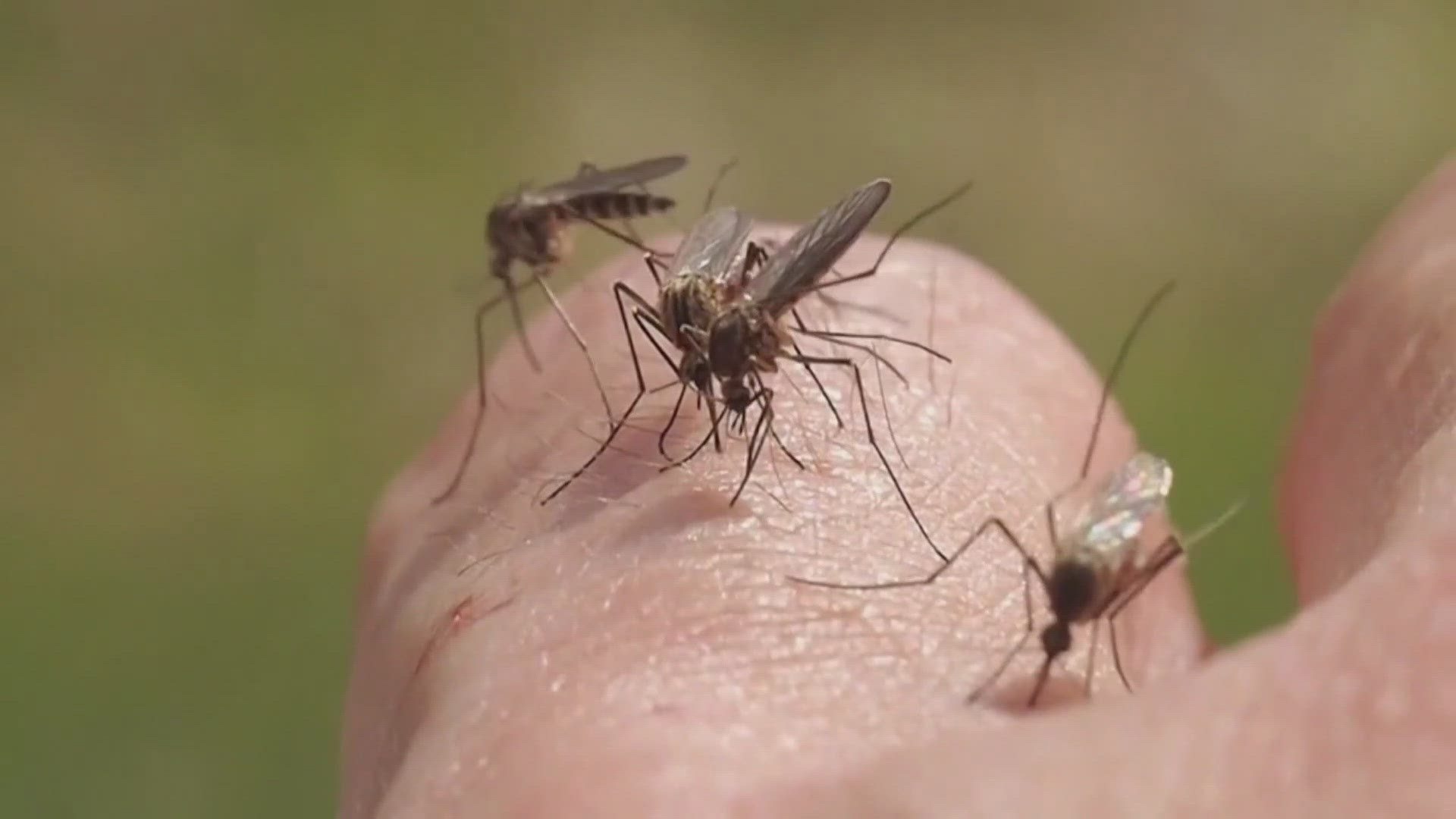DENVER — A Denver resident is recovering after being infected with West Nile virus.
This is Denver's first human case of West Nile virus this year, according to a Friday release from the Denver Department of Public Health and Environment. A department spokesperson said the individual was hospitalized and has been discharged.
Thirteen people have contracted the virus statewide this year, mostly from Arapahoe and Weld counties. Everyone has survived. In 2023, Colorado led the nation in West Nile virus infections, with more than 600 cases and 50 deaths recorded.
August and September are when most West Nile virus cases are diagnosed in Colorado, the release said, but cases can show up as early as May and as late as December.
Health officials are asking residents to take measures to prevent the virus, which is most commonly transmitted to humans from the bite of an infected mosquito. The department shared the following recommendations:
- Stop mosquitoes from laying eggs in or near water on your property.
- Once a week, empty and scrub, turn over, cover, or throw out items that hold water, such as tires, buckets, planters, toys, wheelbarrows, pools, birdbaths, flowerpots, or trash containers.
- Check for water-holding containers both indoors and outdoors.
- Do not water your cement or the street. It can result in pools that support larval mosquitoes.
- If you are making landscape decisions, consider ways to minimize overspray of irrigation to streets and gutters.
- Use Environmental Protection Agency (EPA)-registered insect repellents with DEET. When used as directed, EPA-registered insect repellents are proven safe and effective, even for pregnant and breastfeeding women.
- Avoid activity outdoors at dusk and dawn, when mosquitos are most active.
- When outdoors, wear loose-fitting, long-sleeved shirts and pants.
- Use mosquito repellent as well as candles, incense, and other means to deter mosquitos from your vicinity.
- Use screens on windows and doors. Repair holes in screens to keep mosquitoes outdoors.
The release said typical West Nile virus symptoms, which usually start three to 14 days after being bitten by an infected mosquito, include fever, extreme fatigue, headaches and body aches. Those infected with the virus might also experience skin rashes and swollen lymph nodes, per the release. Symptomatic people should seek medical attention.
Although most West Nile virus symptoms are mild, the release said people over 50 years old or those with weakened immune systems are at a greater risk of developing a more serious illness.
For more information about the West Nile virus, visit the Colorado Department of Public Health and Environment website.

